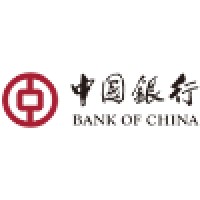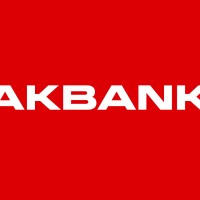Company Cyber Security Posture
NANA
NA Company Details
NA
NA
NA
NA
NA
NA
Scan still pending
NA
NA
Between 200 and 800
This score is AI-generated and less favored by cyber insurers, who prefer the TPRM score.
 NA Global Score
NA Global Score.png)

Company Scoring based on AI Models
| Model Name | Date | Description | Current Score Difference | Score |
|---|---|---|---|---|
| AVERAGE-Industry | 03-12-2025 | This score represents the average cybersecurity rating of companies already scanned within the same industry. It provides a benchmark to compare an individual company's security posture against its industry peers. | N/A | Between 200 and 800 |
Company Cyber Security News & History
| Entity | Type | Severity | Impact | Seen | Url ID | Details | View |
|---|
Company Subsidiaries

NA
Access Data Using Our API

Get company history
.png)
NA Cyber Security News
Suspected Israeli hackers claim to destroy data at Iran's Bank Sepah
An anti-Iranian government hacking group with potential ties to Israel and a track record of destructive cyberattacks on Iran claimed in ...
200+ Malicious Android Apps Targeting Iranian Banks: Experts Warn
An Android malware campaign targeting Iranian banks has expanded its capabilities and incorporated additional evasion tactics to fly under the ...
Charming Kitten Targets Iranian Dissidents with Advanced Cyber Attacks
Germany's Federal Office for the Protection of the Constitution (BfV) has warned of cyber attacks targeting Iranian persons and ...
Wikipedia’s List Of The Largest Data Breaches Globally Since 2004
Compilation of cyberattacks by organization type and number of records compromised. – Steve Morgan, Editor-in-Chief. Sausalito, Calif.

NA Similar Companies

THE FEDERAL BANK LIMITED
Federal Bank, one of the leading private sector banks with presence across the country, began its journey from humble backgrounds to reach the stature of an institution with national prominence & character. The Bank aspires to be the most admired Bank in the country and fuelling its dreams are the 1

Bank of China
Bank of China, include BOC Hong Kong, BOC International, BOCG Insurance and other financial institutions, providing a comprehensive range of high-quality financial services to individual and corporate customers as well as financial institutions worldwide. Over the past century, Bank of China pla

National Bank of Canada
At National Bank, we believe in the potential of each individual, and that even the smallest gestures can make a big difference. When we help others accomplish their projects, we help empower them and the community at large. We try to make a difference through innovation, but above all, by puttin

Akbank
Akbank was founded as a local bank in Adana in January 1948. Established originally with the core objective to provide funding to local cotton producers, the Bank opened its first branch in the Sirkeci district of Istanbul on July 14, 1950. In 1954, after relocating its Head Office to Istanbul, the

Citizens
At Citizens, we recognize that the journey to accomplishment is no longer linear and that individuals are made of all they have done and all they are going to do. As one of the oldest and largest financial services firms in the United States with a history dating back to 1828, we’re committed to pro

CIMB Niaga
CIMB Niaga was established as Bank Niaga in 1955. CIMB Group holds around 97.9% of the stakes in CIMB Niaga (including PT Commerce Kapital 1.02%). The Bank offers a comprehensive suite of both conventional and Islamic banking products and services, through an expanding delivery channel network of 91

Frequently Asked Questions
Explore insights on cybersecurity incidents, risk posture, and Rankiteo's assessments.
NA CyberSecurity History Information
How many cyber incidents has NA faced?
Total Incidents: According to Rankiteo, NA has faced 0 incidents in the past.
What types of cybersecurity incidents have occurred at NA?
Incident Types: The types of cybersecurity incidents that have occurred include .
Additional Questions
What Do We Measure?
















Every week, Rankiteo analyzes billions of signals to give organizations a sharper, faster view of emerging risks. With deeper, more actionable intelligence at their fingertips, security teams can outpace threat actors, respond instantly to Zero-Day attacks, and dramatically shrink their risk exposure window.
These are some of the factors we use to calculate the overall score:
Identify exposed access points, detect misconfigured SSL certificates, and uncover vulnerabilities across the network infrastructure.
Gain visibility into the software components used within an organization to detect vulnerabilities, manage risk, and ensure supply chain security.
Monitor and manage all IT assets and their configurations to ensure accurate, real-time visibility across the company's technology environment.
Leverage real-time insights on active threats, malware campaigns, and emerging vulnerabilities to proactively defend against evolving cyberattacks.




